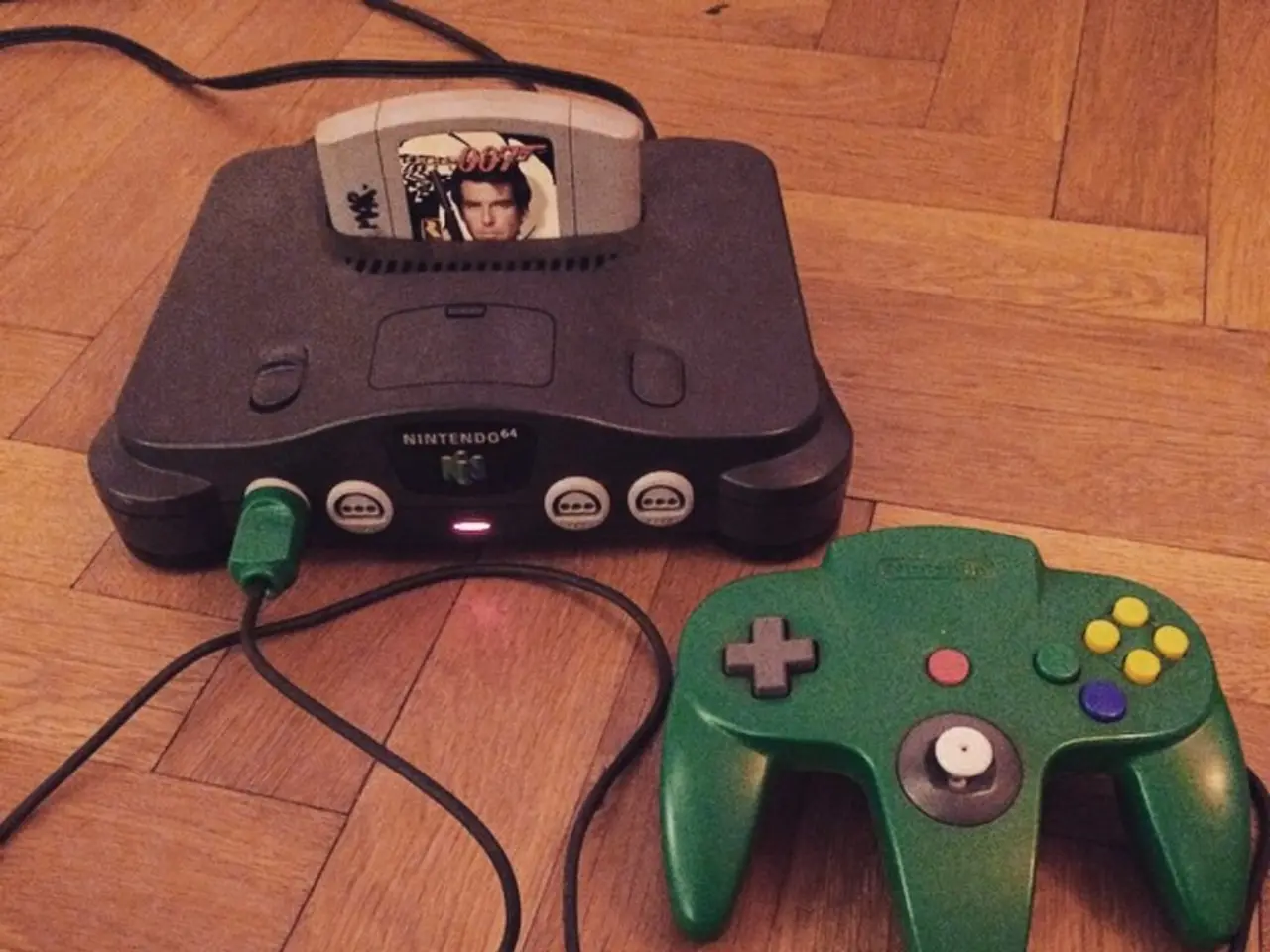Delving into the Past: Revisiting Gaming's Legendary Secret Codes for Unfair Advantage
From humble beginnings as developer tools to beloved consumer features, video game cheat codes have left an indelible mark on the gaming industry. These codes, which allow players to modify game behaviour and gain advantages like unlimited lives or invincibility, have evolved over the years, influenced by various devices and software.
In the early days, cheat codes were primarily used by developers for testing and debugging purposes. However, as the video game industry expanded, these codes found their way into the hands of players. The introduction of devices like the Game Genie, developed by Codemasters, revolutionised the gaming landscape in the 1990s. The Game Genie provided a user-friendly interface for inputting cheat codes, allowing players to bypass the infamous 10NES lock-out chip on the NES to enable features such as unlimited lives and invincibility (1, 3).
The impact of cheat codes on gaming culture cannot be overstated. They have provided players with the opportunity to explore new ways of playing games, often discovering previously unknown techniques and paths within the game. This has fostered a community of gamers who enjoy finding and sharing cheat codes, as well as developing new ones (4).
As cheating became more prevalent, game developers began to implement anti-cheat measures. One of the most notable examples is Valve Anti-Cheat (VAC), developed by Valve. First released in 2002, VAC aimed to combat cheating in games like *Counter-Strike* by banning players caught using cheats. Over time, VAC evolved to include permanent bans for offenders (2).
Throughout the evolution of gaming technology, cheating devices like the GameShark, introduced in the mid-1990s, expanded the use of cheat codes by allowing them to be saved in onboard memory, making it easier for players to access and use cheats without needing to re-enter them each time (5).
Today, we continue to see the development of new and innovative ways for players to customise their gaming experiences, whether through mods, exploits, or perhaps even a resurgence of cleverly hidden cheat codes. As we move forward, it will be interesting to see how the relationship between gamers, developers, and the technology that supports gaming continues to evolve.
References: 1. Game Genie - Retro Collect (n.d.). Retrieved from https://www.retrocollect.com/consoles/nintendo/nes/hardware/game-genie/ 2. Valve Anti-Cheat (2021). Retrieved from https://developer.valvesoftware.com/wiki/Valve_Anti-Cheat 3. Game Genie - GameFAQs (n.d.). Retrieved from https://gamefaqs.gamespot.com/nes/637712-game-genie/ 4. Cheat Codes - IGN (n.d.). Retrieved from https://www.ign.com/wikis/cheat-codes 5. GameShark - Retro Collect (n.d.). Retrieved from https://www.retrocollect.com/consoles/nintendo/nes/hardware/gameshark/
AI could potentially analyze popular gaming patterns and predict future trends in gameplay, providing developers with valuable insights for creating games.
Future advancements in technology might lead to the integration of cheat codes within game development, making them accessible through more intuitive interfaces.
The gaming industry, driven by both developers and players, may increasingly explore the use of AI and technology for creating customizable entertainment experiences in the coming years.








